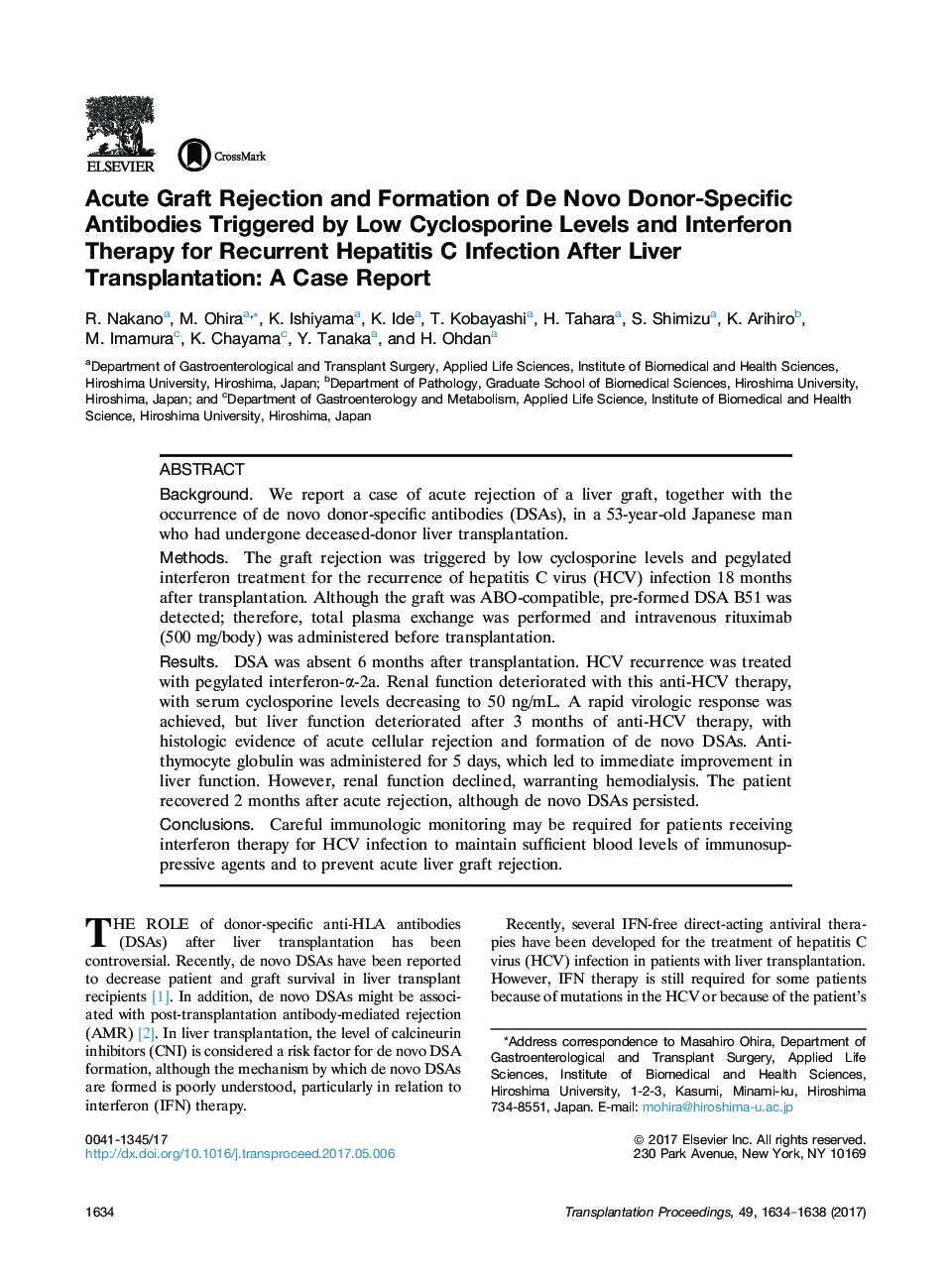| کد مقاله | کد نشریه | سال انتشار | مقاله انگلیسی | نسخه تمام متن |
|---|---|---|---|---|
| 5728750 | 1411670 | 2017 | 5 صفحه PDF | دانلود رایگان |

- We describe a patient who had acute liver graft rejection, with de novo donor-specific antibodies, triggered by pegylated interferon treatment for recurrent hepatitis C virus infection and low serum level of cyclosporine.
- Immediate improvement in liver function was attained after a 5-day course of anti-thymocyte globulin.
- On the basis of our clinical experience, we propose that careful immunologic monitoring is required for patients on interferon therapy to maintain sufficient blood levels of immunosuppressive agents and prevent acute liver graft rejection.
BackgroundWe report a case of acute rejection of a liver graft, together with the occurrence of de novo donor-specific antibodies (DSAs), in a 53-year-old Japanese man who had undergone deceased-donor liver transplantation.MethodsThe graft rejection was triggered by low cyclosporine levels and pegylated interferon treatment for the recurrence of hepatitis C virus (HCV) infection 18 months after transplantation. Although the graft was ABO-compatible, pre-formed DSA B51 was detected; therefore, total plasma exchange was performed and intravenous rituximab (500 mg/body) was administered before transplantation.ResultsDSA was absent 6 months after transplantation. HCV recurrence was treated with pegylated interferon-α-2a. Renal function deteriorated with this anti-HCV therapy, with serum cyclosporine levels decreasing to 50 ng/mL. A rapid virologic response was achieved, but liver function deteriorated after 3 months of anti-HCV therapy, with histologic evidence of acute cellular rejection and formation of de novo DSAs. Anti-thymocyte globulin was administered for 5 days, which led to immediate improvement in liver function. However, renal function declined, warranting hemodialysis. The patient recovered 2 months after acute rejection, although de novo DSAs persisted.ConclusionsCareful immunologic monitoring may be required for patients receiving interferon therapy for HCV infection to maintain sufficient blood levels of immunosuppressive agents and to prevent acute liver graft rejection.
Journal: Transplantation Proceedings - Volume 49, Issue 7, September 2017, Pages 1634-1638